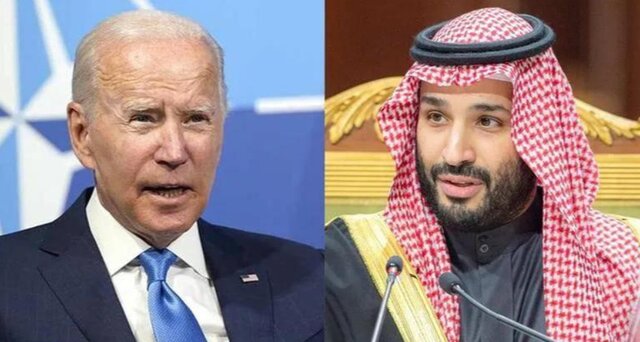US President Joe Biden’s visit to the Middle East is expected to begin next week. His goals appear to be a complex political equation with many unknowns at this point. The three main players are Saudi Arabia, Israel, and Iran, and it remains to be seen how they can eventually come to an agreement, if at all.
In the context of the confrontation with Russia and China, the US currently needs two things from the Middle East: oil and gas, and stability. The first is needed as an alternative to Russian energy resources within the framework of the policy of suffocating Mordor, which cannot be pursued consistently without finding replacements for its oil and gas. The second requirement is related to the first, since without stability there will be no supplies, but overall it corresponds to an expanded understanding of resources. In other words, what is currently required of the Middle East is that it not divert U.S. resources from putting out new fires there, so that they can be focused in the main direction.
Saudi Arabia, Israel and Iran are the three main players on whom the achievement of these goals depends. The problem, however, is that in order to keep one or two of these pieces on the chessboard, it is necessary to sacrifice the third. The U.S. would like to reinstate the nuclear deal with Iran that was terminated by Trump. Under the deal, some sanctions on Iran were lifted, allowing it to export oil to Europe, in exchange for commitments to limit its nuclear program and place it under international control. Such a deal would now be beneficial to the US, Europe, and even Iran itself. But it is not in the interests of Saudi Arabia, which knows from Obama’s previous deal with Iran that the money it receives will be used by the Khomeinist regime for its expansion in the region. Israel is also not enthusiastic about Iran’s economic empowerment, but on the other hand, gaining control over Iran’s nuclear program can alleviate its most serious security concerns.
Another issue is Israeli-Arab relations. Trump tried to reconcile Israel with the major Arab states, especially to bend the Arab world under the Zionists, and he saw Saudi Arabia as the key to this. Limited successes were achieved — a number of bilateral relations were established, but firstly, not with everyone, and secondly, they did not solve the Palestinian problem as Trump and the Zionists had hoped. There is an opinion that Israel and Saudi Arabia will be able to come even closer on the basis of their confrontation with Iran. However, this already contradicts the goals of the renegotiation of the nuclear deal.
Saudi Arabia is apparently the key point of Biden’s upcoming tour, as indicated by the fact that it is mentioned in the title of his article dedicated to this trip. And here the Democrats have to swallow their own words, because they had chosen Mohammad bin Salman as the main target of criticism for the actions of Trump, who flattered him. It was the media close to the Democratic Party that maximally hyped the scandal of Jamal Khashoggi’s murder, presenting (not without reason) Bin Salman as the «evil Mr.». And now it turns out that all this must be forgotten in order for America to achieve its long-term goals.
In short, Biden and his team must be true grandmasters of political analysis to effectively plan and play the Middle East chess game. But serious analysts agree that the best the US can hope for in the Middle East is tactical success. Strategically, the US will no longer be able to simultaneously control events in the Middle East and counter Russia in Europe and China in Southeast Asia. And the choice of priority in the form of the latter direction undoubtedly serves the interests of the Muslims and opens opportunities for them in many directions, as we have already written.

